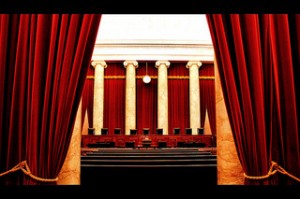Mistaken Beliefs May Mean Constitutional Claims
Posted
27 Apr 2016 in Case Notes, IMLA Briefs
Bad facts make bad law. That said, it is hard to imagine a case sympathetic to a public employer where it discharged or dismissed an employee based on its incorrect belief that the employee engaged in constitutionally protected speech. Either way, the case the Supreme Court heard, and ruled against the public employer in, involved a son helping his bedridden mother.
In Heffernan v. City of Paterson, New Jersey the Supreme Court held 6-2 that a public employer violates the First Amendment when it acts on a mistaken belief that an employee engaged in First Amendment protected political activity. The State and Local Legal Center (SLLC) filed an amicus brief taking the opposite position.





